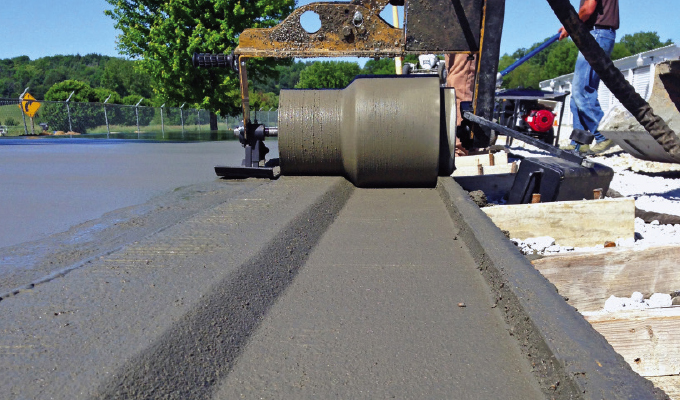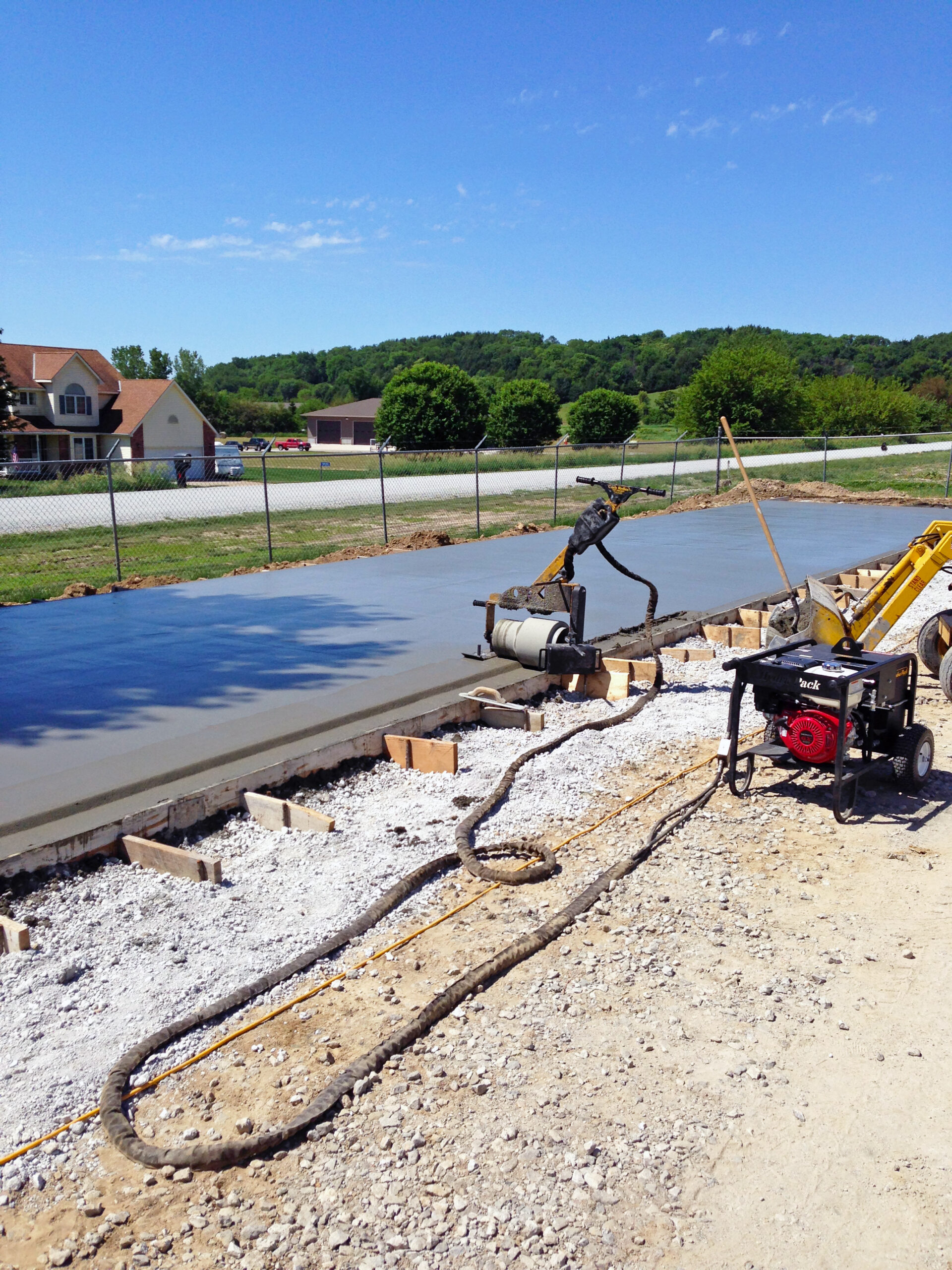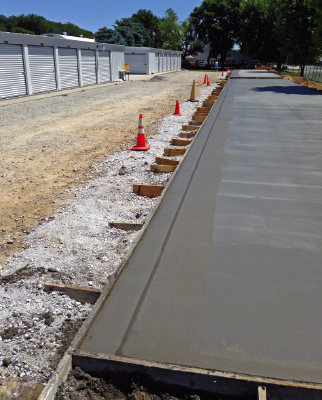Contractors’ projects come in all varieties. Their work often involves skilled physical labor or engaging with subcontractors to complete specific job types. This is especially true when it comes to concrete work. However, with the right equipment, contractors can streamline those processes and improve their bottom line.
At Curb Roller Manufacturing, we often work with contractors to tackle new challenges using innovative equipment solutions. We recently had the opportunity to create a new, efficient solution for mini storage units.
What was the most challenging Curb Roller project to date?
The Curb Roller is typically used to boost efficiency when shaping curb and gutter. It takes the back-breaking, specialized labor out of these projects and allows the operator to achieve a high-quality, consistent result. This user-friendly machine provides a perfect platform for innovating solutions for various concrete applications.
A contractor in Iowa who builds mini storage units approached us with a unique concrete shaping challenge. The storage units would consist of multiple rooms in a row, each with its own garage door. To provide the units protection from environmental elements such as rain or debris, the contractor was required to create a notch for each door to sit in. As opposed to a simple slab, preparing the concrete proved challenging due to the number of workers required to strike, cut, and finish the concrete.
The increased labor requirements and limited labor supply forced the contractor to subcontract the concrete work, limiting the number of storage facilities built each month. Recognizing the restriction this created, the contractor searched for a more efficient way to form the doorway notch.
The contractor heard about our concrete shaping solutions and approached us for help. We began by designing a custom drum profile that pairs with our monolithic kit. This profile was specifically built to shape the doorway notch into the mini storage unit foundations. We went on site with the Curb Roller and tested the drum, completing pours and fine-tuning the design.
The new drum profile doubled this contractor’s production capabilities and became one of our standard stock profiles. We sell it all over the United States for contractors working with this specific application.
What were the obstacles and how did you overcome them?
Designing the drum was the first step, but this intricate project required additional consideration. We had to design a system to ensure that the Curb Roller would be balanced, effective, and efficient in the mini storage unit setting.
Traditionally when working with the Curb Roller, it is designed to scribe off the curb form centered on the concrete. The machine’s weight works to push the concrete down and helps shape the curb and gutter. Within this application, the operator needed the ability to control how much weight is placed on the concrete, and yet still balance holding the machine at the correct elevation to ensure the right shape is achieved.
With mini storage units, the concrete side of the machine is floating across concrete that is not yet fully hardened. We designed a counterweight system, which is included in our monolithic kit, so the operator can add more or less weight to the finishing drum, depending on the workability of the concrete.
In what ways does the Curb Roller provide savings?
The Curb Roller takes the back-breaking labor out of concrete work and helps crews produce consistent results with less dependence on the operator’s experience. Traditionally, a contractor doing any significant amount of work building mini storage units assigns up to four or five people for this process. With this new drum, the contractor found that they no longer need to assign a dedicated crew to shaping the doorway notches. Instead, they can use the same crew working on the rest of the pour. As there are normal pauses in the concrete delivery and placement on the flatwork side, they can fall back and use this machine to shape the doorway notches. This ensures the work can still be completed on or ahead of schedule, even with a small crew.
Another significant area of savings the Curb Roller brings to this application is with lumber. Previously, the contractor was using 2x10s or 2x12s to form the doorway notch in the concrete by placing the lumber before the pour. When a building is several hundred feet long, that lumber cost can balloon to thousands of dollars for a single project. Using the Curb Roller for this process cuts that lumber out of the equation, leading to considerable savings.
What is the best way to maintain your Curb Roller?
The Curb Roller utilizes hydraulic power, providing a durable, low-maintenance machine. Most contractors will see plenty of use and life without any significant maintenance.
The primary maintenance required, as with any tool or equipment that touches concrete, is a thorough cleaning. Cleaning should occur after every pour, and sometimes during if the pour is substantial and broken into sections. Also included in maintenance is greasing the bearings on each end of the drum before and during use.
Closing Thoughts
Curb Roller Manufacturing designs versatile equipment to tackle the most demanding concrete pours. Our team relies on hands-on experience to help engineer innovative solutions to enhance efficiency in unique concrete applications.
Find the original article in Modern Contractor Solutions.



